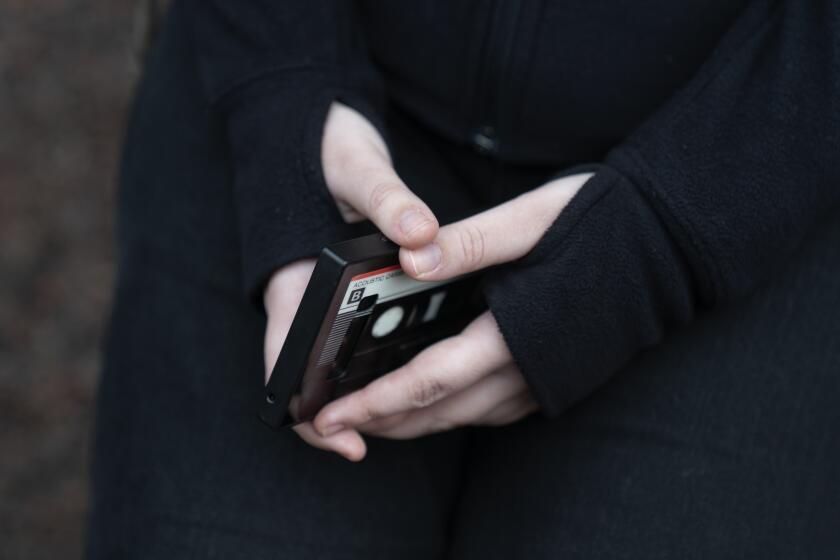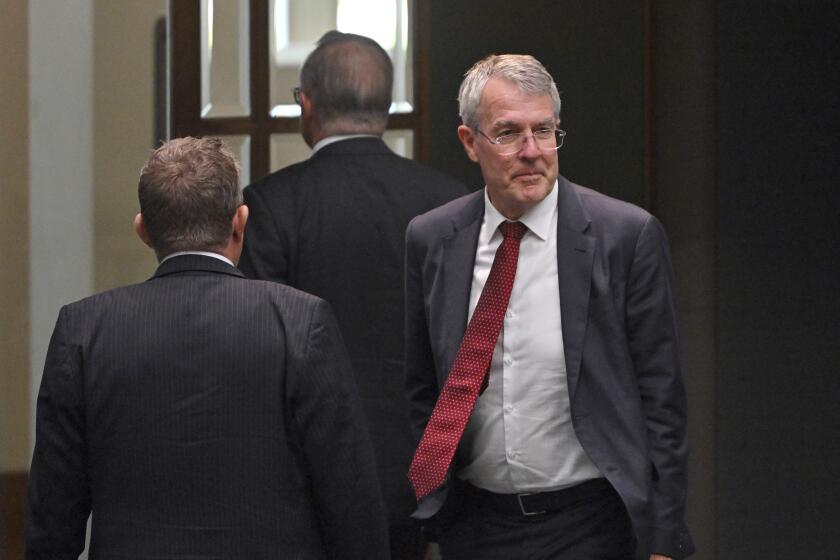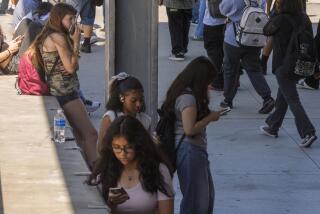Australia closer to passing law banning kids younger than 16 from social media

MELBOURNE, Australia â Australiaâs House of Representatives has passed a bill that would ban children younger than 16 years old from social media, leaving it to the Senate to finalize the world-first law.
The major parties backed the bill that would make platforms including TikTok, Facebook, Snapchat, Reddit, X and Instagram liable for fines of up to 50 million Australian dollars ($33 million) for systemic failures to prevent young children from holding accounts.
The legislation passed 102 to 13 on Wednesday. If the bill becomes law, the platforms would have one year to work out how to implement the age restrictions before the penalties are enforced.
Opposition lawmaker Dan Tehan told Parliament the government had agreed to accept amendments in the Senate that would bolster privacy protections. Platforms would not be allowed to compel users to provide government-issued identity documents including passports or driverâs licenses, nor could they demand digital identification through a government system.
âWill it be perfect? No. But is any law perfect? No, itâs not. But if it helps, even if it helps in just the smallest of ways, it will make a huge difference to peopleâs lives,â Tehan told Parliament.
The U.S. surgeon general says there isnât enough evidence to show that social media is safe for young people. He called on tech companies and caregivers âto protect kids now.â
The bill was introduced to the Senate late Wednesday, but it adjourned for the day hours later without putting it to a vote. The legislation will likely be passed on Thursday, the Parliamentâs final session for the year and potentially the last before elections, which are due within months.
The major partiesâ support all but guarantees the legislation will pass in the Senate, where no party holds a majority of seats.
The Australian government says will outlaw the malicious release online of personal or identifying information without the subjectâs permission. The move comes after pro-Palestinian activists published personal details about hundreds of Jewish people.
Lawmakers who were not aligned with either the government or the opposition were most critical of the legislation during debate on Tuesday and Wednesday.
Criticisms include that the legislation had been rushed through Parliament without adequate scrutiny, would not work, would create privacy risks for users of all ages and would take away parentsâ authority to decide whatâs best for their children.
Critics also argue the ban would isolate children, deprive them of positive aspects of social media, drive children to the dark web, make children too young for social media reluctant to report harms encountered, and take away incentives for platforms to make online spaces safer.
Independent lawmaker Zoe Daniel said the legislation would âmake zero difference to the harms that are inherent to social media.â
âThe true object of this legislation is not to make social media safe by design, but to make parents and voters feel like the government is doing something about it,â Daniel told Parliament.
âThere is a reason why the government parades this legislation as world-leading, thatâs because no other country wants to do it,â she added.
The platforms had asked for the vote to be delayed until at least June next year when a government-commissioned evaluation of age assurance technologies made its report on how the ban could be enforced.
Melbourne resident Wayne Holdsworth, whose 17-year-old son Mac took his own life last year after falling victim to an online sextortion scam, described the bill as âabsolutely essential for the safety of our children.â
âItâs not the only thing that we need to do to protect them because education is the key, but to provide some immediate support for our children and parents to be able to manage this, itâs a great step,â the 65-year-old online safety campaigner told the Associated Press on Tuesday.
McGuirk writes for the Associated Press.
More to Read
Sign up for Essential California
The most important California stories and recommendations in your inbox every morning.
You may occasionally receive promotional content from the Los Angeles Times.











